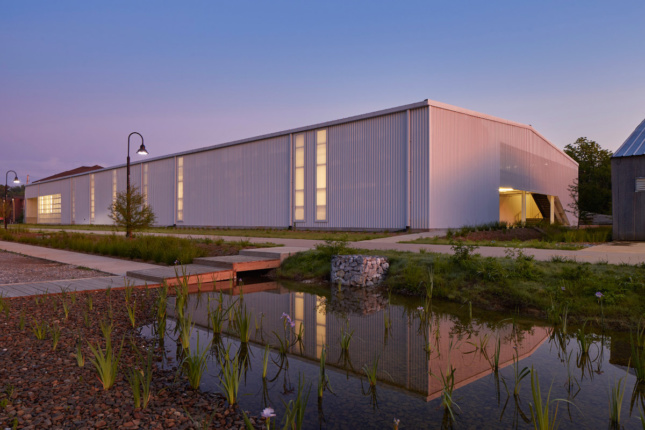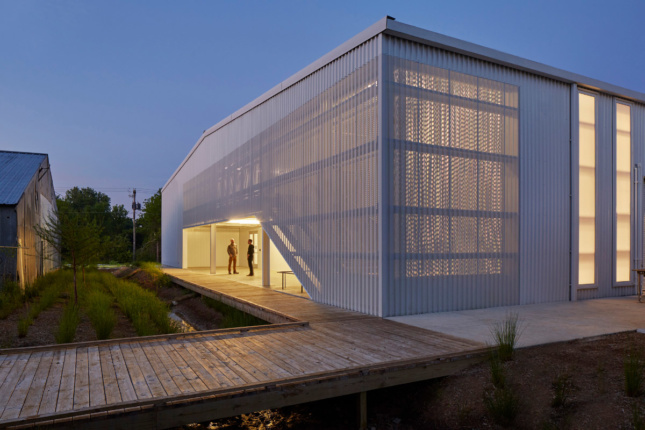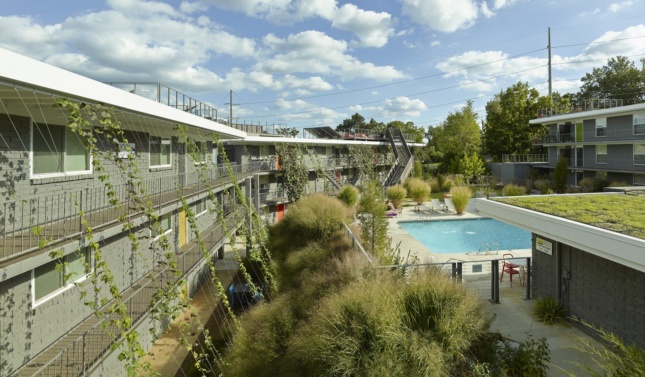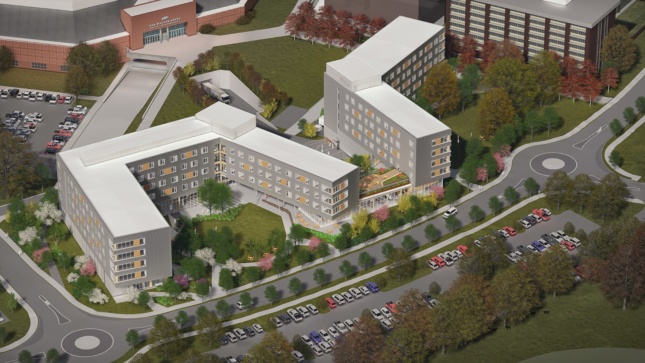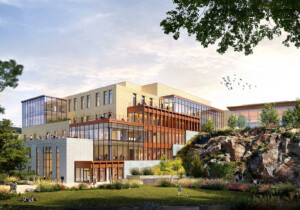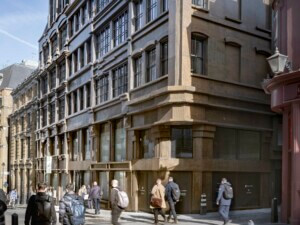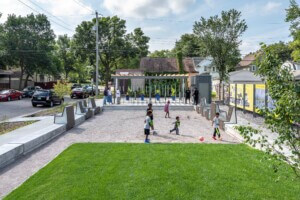The Architectural League of New York’s Emerging Voices award and lecture series highlights individuals and firms with distinct design “voices”, singling out those with the potential to go on to even greater heights.
2018 saw two rounds of judging; first by a panel of past Emerging Voices winners, and a second to pick the winners. The first-round jury included Virginia San Fratello, Sebastian Schmaling, Wonne Ickx, Lola Sheppard, Marcelo Spina, Carlos Jimenez, and Marlon Blackwell, as well as members of the second-round jury, Sunil Bald, Lisa Gray, Stella Betts, Jing Liu, Paul Makovsky, Tom Phifer, Chris Reed, and Billie Tsien.
AN profiled all of the emerging voices firms in our February print issue. Modus Studio founder Chris Baribeau will deliver his lecture on March 1st, 2018, at the SVA Theatre in Manhattan.
Modus Studio might have started in 2008 as a two-man operation in cofounder Chris Baribeau’s back office, but the firm’s expansion to 24 people and a full fabrication shop shouldn’t have come as a surprise. The office’s intensive focus on the surrounding Arkansas environment and their hands-on approach have drawn attention both inside and outside of the state.
“A thinking–making philosophy really evolved out of our passions, from working through college, working on construction, working on fabrication,” explained Baribeau. “It set the tone for the rest of our professional work.”
Modus is a frequent collaborator with the University of Arkansas and has designed for the school a pair of mass timber residence halls, an athletic area master plan, and, most recently, a sculpture studio— although the firm has realized nearly every type of project. Its single-family homes typically draw on the surrounding geographies and ecosystems to influence the final forms, as is the case with Van Huset on the Bluff, a stark cabin overlooking Beaver Lake, in northwest Arkansas.
Educational work has a special place in the studio’s canon. Green Forest Middle School, Modus’s first project, was also the first school that either Baribeau or cofounder Josh Siebert had ever worked on. Having to leap into a new building typology meant engaging heavily with the community at every step of the school’s design and construction, an approach that has carried over to all of their projects afterward.

Timber and sustainability are prominent through-lines in many of Modus’s built works, no matter the intended use. Working with timber allows the studio to harvest wood directly from the trees on-site, or if they’re not able to do so, connect with Arkansas’s timber industry.
Even Modus’s Fayetteville office, a reclaimed warehouse clad in timber that was charred in the fabrication shop, is winning notice, as it was Arkansas’s only LEED Platinum– certified building in 2017. “We’re very connected to the natural world,” said Baribeau. “And being in the Ozarks, the language of the rugged mountains and valleys and rivers connects us to the outdoor world. We’re straddling this dynamic place that’s somewhere between the manmade and the natural world. Our buildings are about fitting into the landscape and drawing inspiration from the context around the site.”

Modus views its location outside of the “major design cities” as a boon. Arkansas is in the process of rebuilding and infilling its urban centers, providing the studio an opportunity to experiment while allowing them to build their brand through projects that serve the community. While Modus has begun working on projects as far north as Illinois, Baribeau is most proud of the K–12 schools that the studio has designed for low-income, rural areas.
“We’ve found, particularly in this region of Arkansas, how rural communities are really underserved in terms of good design. The hub of that community, their tax money, the local football team, all focuses around the public school. For us, the ongoing tilling of the soil is to raise the bar for rural communities.”






